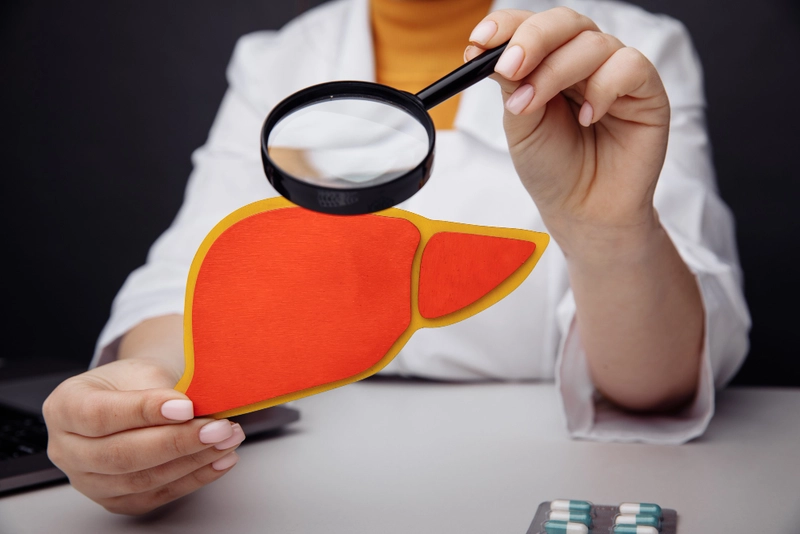- Published on: Mar 25, 2022
- 3 minute read
- By: Second Medic Expert
Vitamin B12 Deficiency Symptoms, Causes, Diagnosis & Treatment.
Vitamin B12 is an important nutrient that helps keep the body's nerve and blood cells healthy. A vitamin B12 deficiency can cause a wide range of symptoms, including fatigue, weakness, constipation, loss of appetite, weight loss, and megaloblastic anemia. left untreated, a vitamin B12 deficiency can lead to serious health problems, such as neurological problems and pernicious anemia. The best way to prevent a vitamin B12 deficiency is to eat a balanced diet that includes foods rich in vitamin B12, such as meat, fish, poultry, eggs, and dairy products.
Vitamin B12 deficiency can cause a wide range of symptoms and health problems. If you suspect that you may be deficient in vitamin B12, it's important to see a doctor for diagnosis and treatment. Symptoms of vitamin B12 deficiency can include fatigue, weakness, feeling lightheaded or dizzy, pale skin, headache, upset stomach, constipation, or diarrhea. You may also experience tingling or numbness in your hands and feet. In severe cases, vitamin B12 deficiency can lead to vision loss or memory problems.
Vitamin B12 is found naturally in animal foods such as meat, fish, eggs, and dairy products. Vitamin B12 deficiency can cause a wide range of symptoms, including fatigue, weakness, constipation, loss of appetite, and weight loss. In children, vitamin B12 deficiency can cause developmental delays. Vitamin B12 deficiency can also cause anemia and neuropathy (nerve damage).
The most common cause of vitamin B12 deficiency is pernicious anemia, which is a type of autoimmune disease that damages the stomach lining and prevents the body from properly absorbing vitamin B12. Other causes of vitamin B12 deficiency include celiac disease, Crohn's disease, gastric surgery, and certain medications (such as metformin). Vitamin B12 deficiency can cause a wide range of symptoms, some of which are very serious. Symptoms can develop slowly, over months or even years, or they can come on suddenly and be very severe. The most common symptom of vitamin B12 deficiency is fatigue. You may feel tired all the time and have no energy to do things you normally enjoy. Other early symptoms include depression, memory problems, changes in mood, and headaches.
Do you often feel tired and run down? Do you have trouble concentrating or memory problems? These could be signs of vitamin B12 deficiency. Vitamin B12 is a nutrient found in meat, poultry, fish, and dairy products. It helps the body make red blood cells and keeps the nervous system functioning properly. A vitamin B12 deficiency can cause anemia and neurologic problems. If you think you might have a vitamin B12 deficiency, see your doctor. He or she can order a blood test to check your vitamin B12 levels.
Vitamin B12 deficiency can lead to a wide range of symptoms, including fatigue, depression, poor memory, and problems with vision and balance. The most common cause of vitamin B12 deficiency is a condition called pernicious anemia, which interferes with the body's ability to absorb this vital nutrient. Treatment for vitamin B12 deficiency typically involves taking supplements or getting regular injections of the vitamin.
Vitamin B12 is an essential nutrient that helps keep the body's nerve and blood cells healthy. It also aids in the production of DNA, RNA, and red blood cells. stained in a form Normally, Vitamin B12 is found in animal-sourced foods such as meat, poultry, eggs, and dairy products. If you don't eat enough of these foods or if your body can't absorb Vitamin B12 properly, you may develop a deficiency. The most common symptom of Vitamin B12 deficiency is anemia - tiredness, weakness, shortness of breath, and heart palpitations caused by a lack of red blood cells. Left untreated, Vitamin B12 deficiency can lead to numerous health problems including memory loss & dementia.
Vitamin B12 is an important nutrient that the body needs for several crucial functions. Unfortunately, vitamin B12 deficiency is quite common, affecting an estimated one in four people. Symptoms of vitamin B12 deficiency can be subtle and may come on slowly. They can include fatigue, weakness, lightheadedness, rapid heartbeat, migraines, memory problems, and difficulty enunciating words (making them sound muddled). More serious symptoms can develop over time such as tingling in the extremities (arms and legs), vision problems, and paranoia. If left untreated, vitamin B12 deficiency can lead to permanent neurological damage.
Vitamin B12 Deficiency Symptoms
The most common symptom of vitamin B12 deficiency is fatigue. You might also experience:
brain fog
clumsiness
depression
forgetfulness
headaches
extreme tiredness (fatigue)
Other symptoms can include:
anemia blood pressure changes changes in mood or behavior constipation diarrhea lightheadedness nerve problems pale skin sore tongue swollen, reddish gums In severe cases, vitamin B12 deficiency can lead to dementia or mania.
Vitamin B12 is an essential nutrient involved in various bodily functions, including the production of red blood cells and DNA. A vitamin B12 deficiency can cause serious health problems, including anemia and neurological problems. The most common cause of vitamin B12 deficiency is simply not having enough of the vitamin in your diet. Vegans and vegetarians are at particularly high risk for this since vitamin-rich animal foods are a major source of the nutrient.
Our Services
Request A Callback
Recent Posts
Can Fatty Liver Be Reversed Completely?
Jul 31,2025
How Your Sleep Schedule Affects Digestion
Jul 28,2025
How to Spot Signs of Hormonal Imbalance in Men
Jul 26,2025
Do You Need a Digital Detox? Signs and Symptoms
Jul 25,2025
How Walking Daily Affects Your Blood Pressure
Jul 24,2025










